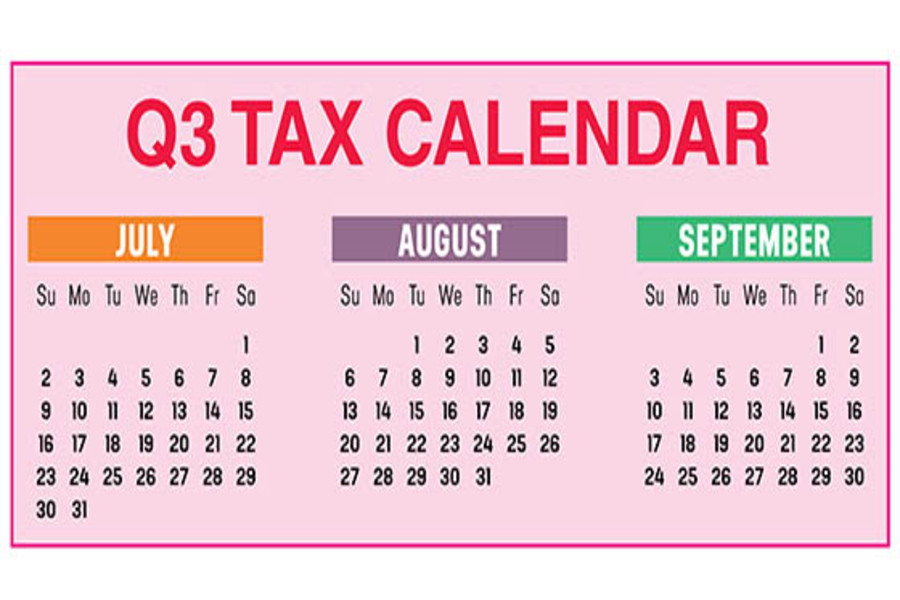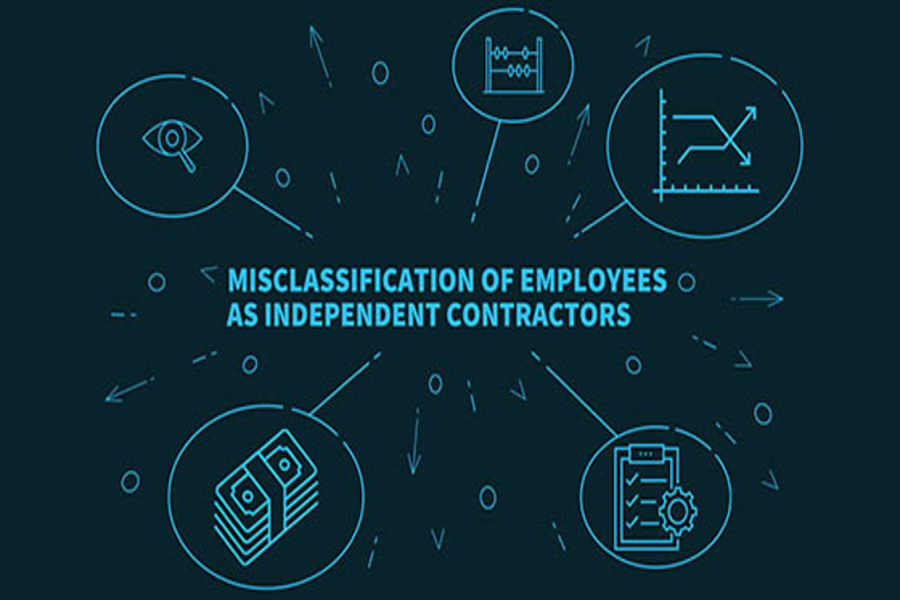Government officials saw a large increase in the number of new businesses launched during the COVID-19 pandemic. And the U.S. Census Bureau reports that business applications are still increasing slightly (up 0.4% from April 2023 to May 2023). The Bureau measures this by tracking the number of businesses applying for Employer Identification Numbers. If you’re one of the entrepreneurs, you may not know that many of the expenses incurred by start-ups can’t be currently deducted on your tax return. You should be aware that the way you handle some of your initial expenses can make a large difference in your federal tax bill. Handling expenses If you’re starting or planning to launch a new business, here are three rules to keep in mind: Start-up costs include those incurred...

If you own or manage a business with employees, there’s a harsh tax penalty that you could be at risk for paying personally. The Trust Fund Recovery Penalty (TFRP) applies to Social Security and income taxes that are withheld by a business from its employees’ wages. Sweeping penalty The TFRP is dangerous because it applies to a broad range of actions and to a wide range of people involved in a business. Here are some answers to questions about the penalty: What actions are penalized? The TFRP applies to any willful failure to collect, or truthfully account for, and pay over taxes required to be withheld from employees’ wages. Why is it so harsh? Taxes are considered the government’s property. The IRS explains that Social Security and income taxes “are...
Here are some of the key tax-related deadlines affecting businesses and other employers during the third quarter of 2023. Keep in mind that this list isn’t all-inclusive, so there may be additional deadlines that apply to you. Contact us to ensure you’re meeting all applicable deadlines and to learn more about the filing requirements. July 31 Report income tax withholding and FICA taxes for second quarter 2023 (Form 941) and pay any tax due. (See the exception below, under “August 10.”) File a 2022 calendar-year retirement plan report (Form 5500 or Form 5500-EZ) or request an extension. August 10 Report income tax withholding and FICA taxes for second quarter 2023 (Form 941), if you deposited on time and in full all of the associated taxes due. September 15 If a...
Your business may be able to claim big first-year depreciation tax deductions for eligible real estate expenditures rather than depreciate them over several years. But should you? It’s not as simple as it may seem. Qualified improvement property For qualifying assets placed in service in tax years beginning in 2023, the maximum allowable first-year Section 179 depreciation deduction is $1.16 million. Importantly, the Sec. 179 deduction can be claimed for real estate qualified improvement property (QIP), up to the maximum annual allowance. QIP includes any improvement to an interior portion of a nonresidential building that’s placed in service after the date the building is placed in service. For Sec. 179 deduction purposes, QIP also includes HVAC systems, nonresidential building roofs, fire protection and alarm systems and security systems...
If you and your employees are traveling for business this summer, there are a number of considerations to keep in mind. Under tax law, in order to claim deductions, you must meet certain requirements for out-of-town business travel within the United States. The rules apply if the business conducted reasonably requires an overnight stay. Note: Under the Tax Cuts and Jobs Act, employees can’t deduct their unreimbursed travel expenses on their own tax returns through 2025. That’s because unreimbursed employee business expenses are “miscellaneous itemized deductions” that aren’t deductible through 2025. However, self-employed individuals can continue to deduct business expenses, including away-from-home travel expenses. Rules that come into play The actual costs of travel (for example, plane fare and cabs to the airport) are deductible for out-of-town business trips....
If you’re claiming deductions for business meals or auto expenses, expect the IRS to closely review them. In some cases, taxpayers have incomplete documentation or try to create records months (or years) later. In doing so, they fail to meet the strict substantiation requirements set forth under tax law. Tax auditors are adept at rooting out inconsistencies, omissions and errors in taxpayers’ records, as illustrated by one recent U.S. Tax Court case. Facts of the case In the case, a married couple claimed $13,596 in car and truck expenses, supported only by mileage logs that weren’t kept contemporaneously and were made using estimates rather than odometer readings. The court disallowed the entire deduction, stating that “subsequently prepared mileage records do not have the same high degree of...
The IRS recently released guidance providing the 2024 inflation-adjusted amounts for Health Savings Accounts (HSAs). HSA fundamentals An HSA is a trust created or organized exclusively for the purpose of paying the “qualified medical expenses” of an “account beneficiary.” An HSA can only be established for the benefit of an “eligible individual” who is covered under a “high-deductible health plan.” In addition, a participant can’t be enrolled in Medicare or have other health coverage (exceptions include dental, vision, long-term care, accident and specific disease insurance). Within specified dollar limits, an above-the-line tax deduction is allowed for an individual’s contributions to an HSA. This annual contribution limitation and the annual deductible and out-of-pocket expenses under the tax code are adjusted annually for inflation. Inflation adjustments for next year In Revenue Procedure...
Many businesses use independent contractors to help keep their costs down — especially in these times of staff shortages and inflationary pressures. If you’re among them, be careful that these workers are properly classified for federal tax purposes. If the IRS reclassifies them as employees, it can be an expensive mistake. The question of whether a worker is an independent contractor or an employee for federal income and employment tax purposes is a complex one. If a worker is an employee, your company must withhold federal income and payroll taxes and pay the employer’s share of FICA taxes on the wages, plus FUTA tax. A business may also provide the worker with fringe benefits if it makes them available to other employees. In addition, there may...
Whether you’re operating a new company or an established business, losses can happen. The federal tax code may help soften the blow by allowing businesses to apply losses to offset taxable income in future years, subject to certain limitations. Qualifying for a deduction The net operating loss (NOL) deduction addresses the tax inequities that can exist between businesses with stable income and those with fluctuating income. It essentially lets the latter average out their income and losses over the years and pay tax accordingly. You may be eligible for the NOL deduction if your deductions for the tax year are greater than your income. The loss generally must be caused by deductions related to your: Business (Schedules C and F losses, or Schedule K-1 losses from partnerships or...
One popular fringe benefit is an education assistance program that allows employees to continue learning and perhaps earn a degree with financial assistance from their employers. One way to attract, retain and motivate employees is to provide education fringe benefits so that team members can improve their skills and gain additional knowledge. An employee can receive, on a tax-free basis, up to $5,250 each year from his or her employer under a “qualified educational assistance program.” For this purpose, “education” means any form of instruction or training that improves or develops an individual’s capabilities. It doesn’t matter if it’s job-related or part of a degree program. This includes employer-provided education assistance for graduate-level courses, including those normally taken by individuals pursuing programs leading to a business,...











